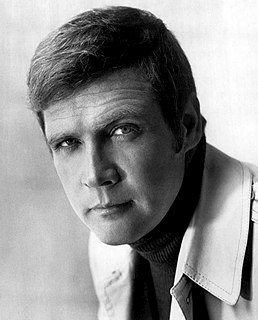A Quote by Nicholas Kristof
I was the first blogger on the Times's website. That happened during the Iraq war, when I wanted an outlet for the things I was seeing every day that couldn't fit into just two columns a week. Then I became interested in using multimedia, specifically as a way to engage young people.
Related Quotes
I've always been interested in technology, but specifically how we can use machines to engage the imagination. I started using computers when I was young and was fascinated by creating rules and instructions that allow a computer to engage in a dialogue with humans. The stories found in the data all around us can do just that.
We in politics are accustomed to seeing reality firsthand and then watching its distant cousin, events as portrayed by the media, unfold on our televisions. We know that what happened in Congress and what is reported to have taken place are two very different things. But that disjuncture, so familiar to politicians, is new to the viewing public. By seeing war and war coverage juxtaposed nightly on their screens, Americans have learned the crucial lesson: not to trust the news anchors.
Dutch beaches were known to me as man-made territories, as part of various land reclamation projects. But I was also interested in the media reality of the Moon landing. I wanted to use that event as a measure of time, to see what had happened in those thirty years - which happens to be my lifetime as well. I was born in 1967 and I remember seeing the Moon landing on TV when I was two. All those things were in play. Then it became a big production. It took five months to gather up the goodwill and make it happen.
If you make a film and then two and a half, three years later, suddenly the country's changed and you look like you just happened to hit it. I actually like being contrarian. I would have preferred to come out three years ago when everyone was disagreeing with me. But hopefully it asks a lot of questions about our responsibility in sending young men and women to war, especially a war that's so complex, where there's no right answer, where they're forced with impossible decisions every day.
I've always looked at people like Carine Roitfeld, Donatella Versace, DVF...people who when you walk on a set you feel like they still have so much excitement for what they're doing every day and they just have so much youth even though they've been doing it for so long. Every day just working to keep a young spirit - because even when you're young that's hard to do, because you get so caught up in things. I just think it's so important to make an effort every day to have a young spirit. Then when you get older, you always kind of keep that.
People talking about politics usually start from the ass end backwards in that they think you have a political agenda, and then you make your work fit that cookie cutter. It's the other way around. One works by simple observation, looking into things. It's usually called insight and out of that comes your view - not that you have the view first and then squash everything to make it fit. I'm not interested in cutting the feet off my characters or stretching them to make them fit my certain political view.
The best way is to read it all every day from the start, correcting as you go along, then go on from where you stopped the day before. When it gets so long that you can't do this every day read back two or three chapters each day; then each week read it all from the start. That's how you make it all of one piece.
In my head, thought, I would love to do an interview where it's just sort of de-constructed - the talking points of Iraq - sort of the idea of, is this really the conversation we're having about this war? That if we don't defeat Al Qaeda in Iraq, they'll follow us home? That to support the troops means not to question that the surge could work. That, what we're really seeing in Iraq is not a terrible war, but in fact, just the media's portrayal of it.

































